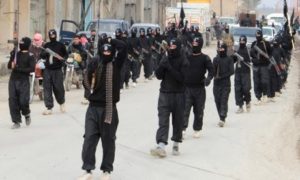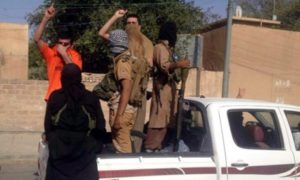

Things are so bad in Iraq that Iraqis reportedly asked President Obama last month to consider bombing Sunni militant staging posts there, according to a report in the New York Times. Obama rejected the request.
The Guardian described the threat from the insurgents as the “gravest test since the U.S.-led invasion more than a decade ago.”
The U.N. Security Council said the humanitarian situation around Mosul, where up to 500,000 people have fled, was “dire and is worsening by the moment.”
While the U.S. is considering offering assistance to the Iraqis, the ease with which the insurgents overtook the Iraqi army undermines U.S. claims to have established a unified and competent military after more than a decade of training—and a cost to the U.S. of close to a trillion dollars and the lives of more than 4,500 soldiers. In addition, more than 100,000 Iraqis are said to have died during the U.S. occupation.
The Sunni Muslim insurgents are led by an al-Qaeda offshoot called the Islamic State of Iraq and the Levant (ISIS). They made incursions in Saddam Hussein’s hometown of Tikrit after first capturing Mosul, Iraq’s second city. They also control a large swathe of territory in eastern Syria and western and central Iraq.
Officials in Baghdad had to concede that insurgents had stripped the main army base in Mosul of weapons, released hundreds of prisoners from the city’s jails and may have seized up to $480 million in banknotes from the city’s banks.
Most embarrassingly, there were two divisions of Iraqi soldiers, about 30,000 men, who simply turned and ran in the face of the assault by an insurgent force of just 800 fighters, according to the Guardian. The extremists reportedly were surprised at the ease with which they took Mosul after three days of sporadic fighting.
Shamed officials in Baghdad accused the army of betrayal. They said the taking of Mosul was a strategic disaster that would imperil Iraq’s borders.
U.S. State Department spokeswoman Jen Psaki said Washington was committed “to working with the Iraqi government and leaders across Iraq to support a unified approach against ISIL’s continued aggression.”


